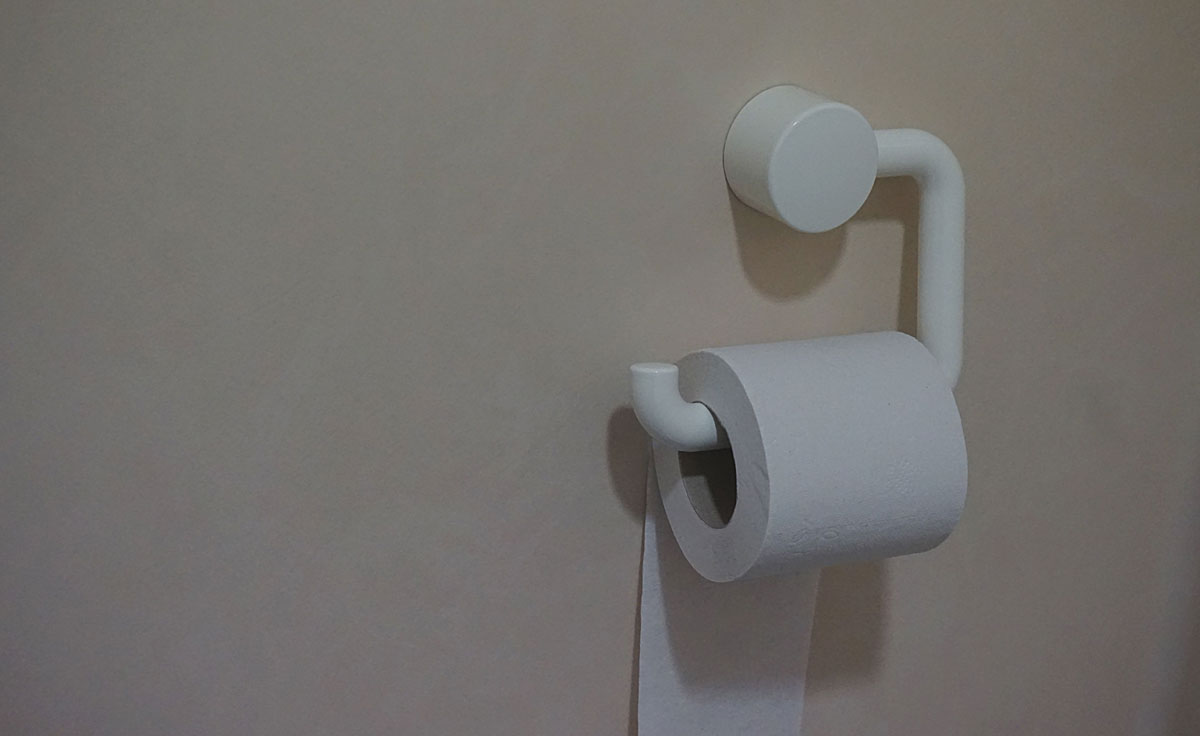
It’s a little known fact that humans create a lot of waste through garbage and human excretion. Yes, most of us don’t really like to talk about it much, but if you’ve ever read the children’s book “Everyone Poops” you know that I’m right. Waste comes in many forms and we are some of the biggest creators.
So, what do you do with waste in an emergency? Well, assess the types of waste being created by the emergency, separate that waste accordingly, and dispose of it separately. Most waste shouldn’t be mixed to avoid passing diseases or causing rot. Ways of disposal are through burial through a system far from living quarters.
All the specifics about waste disposal and the dangers of not disposing properly are important to know as well. Knowing that waste needs to be disposed of and actually doing it right are two different things.
Make an Assessment of the Situation
The first few steps to dealing with waste are pretty simple and straight forward. Most people who are OCD would do these steps without thinking. However, if you aren’t OCD, I’m here to help you tap into your unmet perfectionism potential…you’re welcome!
In order to determine the proper way to dispose of waste, it’s important to assess the situation before jumping in. Once you have a good take on what’s happening, what and who’s involved, certain vital questions answered, you can better take care of the management of all the produced waste.

We’re going to focus on the day-to-day small scale management of waste. It would be difficult to make an extensive explanation for each emergency and its affect on the community and surrounding areas on a large scale. Instead, we’ll give you the tools to assess the situation for living day to day while an emergency persists.
Here are some important questions to ask:
- How much waste is being produced each day? How many people are contributing to the waste?
- Who will be in charge of disposing of the waste? (This is important to determine beforehand because of how undesirable this task is)
- What types waste are there? (different disasters and emergencies will have different types of waste.)
Although it may seem tedious, an assessment is an essential part of making sure you know what you’re dealing with. It’s all part of the problem solving process. You can’t help the problem/issue get better if you aren’t willing to assess all the factors surrounding it. Even though all families are different, these questions are a starting point.
Note: DO NOT store waste near your water supply.
We’re not taking into complete account all the details, these are just examples of possible questions. There are some things you’ll have of on your own; for example, what if you have children with special needs? Elderly with needs? What if due to reasons beyond your control your environment makes it difficult to dispose of waste? What if you can’t bury some of it? Then what?
How Much Waste is Being Produced?
When people are displaced into camps, or many people are forced to cram into one home not equipped for that amount of people- whether during an emergency or otherwise, the increase in waste will be more than double what you’d have in a regular home. Whether we like it or not, waste must be dealt with, especially in situations when there’s a large concentration of people in one living space.

The last thing anyone is thinking about in an emergency is waste management. It’s usually at the bottom of the list of concerns; easily forgotten. Ironically, forgetting about waste management is the last thing you want to do.
Most people who don’t know much about it make the mistake of waiting until they become head-high in their own waste with nowhere to put it. You don’t want to be that person, trust me. Just imagining myself in an emergency situation where I’m wallowing in everyone else’s waste just makes me cringe.
But, fear not, there is a way to deal with the waste! Humans are creative and innovative thinkers. Experience has taught us a few things. Some of them being the different types of wastes, how they affect each other, and what to do to “lighten the load”.
What are the Different Types of Waste?
There is more than one different type of waste! Don’t worry, I’m not purposely trying to remind you that you should recycle even though you don’t…I’m just saying knowing the difference between wastes helps us understand how to deal with it. It could save your life or make your life a whole lot better. You don’t want any of that stinking up your living quarters in an emergency- especially if everyone is crammed into a small space, or the state/local disposal system is non-responsive. So, here are the different types to help you figure out what to do.
- Organic Waste: Kitchen waste; vegetables, fruits, herbs, etc.
- Toxic Waste: medical waste; paints, chemicals, batteries, spray cans, bulbs, etc.
- Recyclable: paper, glass, metals, plastics
- Human Waste: Urine, feces, and other bodily fluids
Once an assessment has been made about how much waste, how often, and the types of waste produced, then it’s on to dealing with the waste. For more information about the disposal of waste on a larger scale, click here.
Organic Waste
Organic waste is probably the least menacing. This waste (aside from meat, oils, and things like that) can be used as compost for a garden or disposed of in a far corner in the back without causing any problems. You’ll want it further away just because even though it’s organic, it can still stink while it decomposes.

The other reason you want to do it far away is just because of critters and insects and pests that will enjoy the nice dinner you’ve provided with your leftovers. For all your waste, there should be a designated waste area. I would place my reusable/organic waste and human waste on opposite sides of wherever I’m at.
Toxic Waste
Toxic waste must be disposed of quickly and carefully. Putting it somewhere where it can’t get wet or leak into soil and other places would be the best place to put it. Ideally, taking it to a facility which can dispose of it properly is the best solution. But, we’re assuming many different angles. There is a possibility you won’t be able to dispose of it immediately which means you’d need a place to put it temporarily.
Set it away from children and away from open flames. Make sure it’s not in an airtight container or space. Then, make sure it’s covered and away from anything it could contaminate; food, soil, or flowers, things like that.
Recyclable
I don’t think I really need to tell you what you should do with this waste. This is by far the most self explanatory. Hopefully, you’ll have plans beforehand on how to utilize this waste till you can’t use it anymore. Empty plastic and/or glass bottles and cardboard boxes can come in very handy when you don’t have all the resources you need.
They are usable and reusable, it all depends on your imagination and willingness to settle for less than what you’d rather have. Sometimes what you think up and create is better than something super expensive you’d buy at a store. Oh, the blessings of having an brain with an imagination attached!
Anything that can’t really be recycled, should be disposed of through burying in whole guarded by mounds which don’t allow water to seep into, or hung up until it can be disposed of properly.
Human Waste
This is by far the most concerning. The most important thing to remember is that liquids and solids can’t be put in the same place. I mean you could always make and outhouse if you live in the country which would be the easiest and most logical thing to do. However, not everyone lives in the country.

Many people will have to resort to using buckets and will have to find a way to keep it far enough away so as not to get anyone sick. That’s where the separation of the urine and feces comes in. Keep those separate and you’ll have a better chance of keeping the smell down and preventing anyone from getting sick.
Choose Someone to be the Designated Disposer
While this is simple in theory, the actual process of choosing someone is not so simple. Let’s face it, no one wants to be that guy that has to take care of everyone’s waste. So, an idea is to take turns, or choose some willing human who will sacrifice their nostrils to save everyone else’s nostrils.
You laugh, but you won’t when it’s you who has to dispose of it. The reason I’m even touching on this particular subject is because in emergencies, people can become stubborn and unwilling. On the other hand, there will be those who become surprisingly cooperative and humble, self-sacrificing even. It all depends on what’s going on.
But, if you plan ahead and predesignate someone, you’re in good shape. Plus, they can’t escape if they’ve already been designated and agreed to be the disposal of less than pleasurable solids and liquids. (pardon my clear visual)
What are the Dangers of not Managing Waste Properly?
I don’t want to frighten you, but sometimes people need to be pushed and/or startled into just plain being wise. Everybody has their moments…especially those certain family members who seriously and unfortunately only learn by experience (often to their pitiful demise in Oh! so many ways!)
Here are a few dangers of poor waste management:
- Infestations of pests and critters
- Disease spreading
- Horrible Odor=cranky people and misery
- Injury and Death from toxic waste and dangerous materials
Infestation of Pests and Critters
When waste is not properly disposed of, it attracts pests and animals. Even disposed of properly, waste will still attract undesirable creatures. Many of these creatures are the spreaders of disease. Placing the garbage in a place that is well-vented and away from you and your family/living quarters is the best way to prevent this.

In an emergency, an infestation is super dangerous. You can’t call an exterminator if everyone is suffering. And, in a crisis, people are not able to access or communicate with exterminator or carpet cleaners, or helpful workers similar to those.
So, placement of waste is important, and storing pest control preventative tools would be an awesome way to keep them away. You may not have thought of it, but some mouse traps, rat traps, spider traps, cockroach traps, etc., are all things you could store; depending on your environment and state or country of residence. Whatever pests you have, store some pest control for those emergencies.
Disease Spreading
Along with the possibility of pests comes disease. toxic or human waste leaking into water supplies and soil where you are growing plants, or even where you are sleeping; these are things which create disease. The last thing anyone wants when they are already suffering in a crisis is for them or their family to get sick.
Many civilizations, especially those of the third-world have died almost solely due to poor hygiene and waste management. There’s a reason your body rids itself of certain things- because it would harm it to keep it inside. I’m not a scientist or a doctor, but I did take human anatomy and biology and learned a few things. I learned about the digestive system and the importance for your body to rid itself of toxic substances.
You can’t stop it, but you can manage it so it doesn’t get out of control and kill you.
Horrible Odors
The smell guys! That’s a huge reason to manage your waste. The proper management of waste significantly decreases your personal suffering. It might surprise you, but we humans can actually survive pretty contentedly on very little. If we were all of us willing to only live with the essentials, you’d be surprised how happy you can be with very little.

You might think that’s a little off topic, but not so. You don’t have to live with horrible odors. As stated earlier in this post, waste properly managed doesn’t become a crisis in itself and a burden. Manage it, and you won’t suffer from the horrible odors. (you might suffer a little in the nose-hairs when you dispose of it, but that’s it.)
Injury and Death Caused by Domestic and Toxic Waste
We’ve talked a lot about human excrement (my humblest apology). However, it’s also important to take into consideration the domestic and toxic waste; glass bottles, debris, batteries, aerosol cans, gas leaks, etc. It’s important to take care of these to prevent injury and death. You’ve seen the movies someone getting cut or injured in a crisis and they slowly die…well, that can actually happen.
The cause of this is lack of conscientiousness towards the disposal of waste. Imagine, what if you are injured from waste and debris and can’t get to a doctor? What then? When considering emergencies, it can be unnerving, but important to think to yourself “What is the worst that could happen?”, because, in a crisis, the worst can happen. If you’re prepared, you have no need to fear. If you know how to take care of things you don’t usually take care of- like waste of every kind- you can move forward with the assurance that everything will be alright.
It’s amazing what a little knowledge about the little things can do for your sanity and ability to be at peace in a crisis situation. And, if you think about it this waste, learning how to manage your own waste properly is a good message for life. There will be times in your life where the only person who can deal with the waste and trash you emit is you. That’s a lesson if I ever say one.


